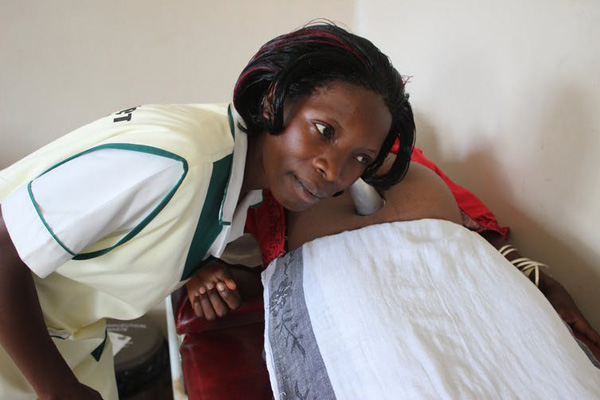Commemorating the tenth anniversary of the adoption of the Protocol to the African Charter on Human and Peoples’ Rights on the Rights of Women in Africa: Exploring possibilities for promoting women’s sexual and reproductive rights
The Protocol to the African Charter on Human and Peoples’ Rights on the Rights of Women in Africa (also called the ‘Maputo Protocol’) was adopted in 2003 and entered into force in 2005. It has now been ratified by two-thirds of AU member states.
One of the most important provisions of the Protocol is article 14, dealing with the health and reproductive rights of women. Article 14 has been hailed for advancing women’s rights beyond existing international standards, by providing for the right to medical abortion under certain circumstances, and the recognition of the intersection of women’s human rights and HIV. Article 10(3) of the Protocol is also innovative. It places an obligation upon states to reduce military spending in favour of social development and the promotion of women, in particular. This provision has the potential to significantly advance women’s health and reproductive rights.
The Centre for Human Rights will host a conference on 9 and 10 December 2013 (in Pretoria, South Africa) to reflect on these and other innovative aspects of the Protocol, and invites papers on the following themes:
(a) Women and HIV
Article 14(1)(d) and (e) of the Protocol have been widely applauded as the first binding treaty provision to deal explicitly with HIV. However, the formulation of these two provisions is open to interpretation. The African Commission on Human and Peoples’ Rights clarified the meaning and scope of the provisions and enumerated specific state obligations in the General Comments on article 14(1)(d) and (e) which it adopted in October 2012. Papers are invited to further expose these provisions and the adopted General Comments, to analytical scrutiny.
(b) Access to safe abortion
Article 14(2)(c) has also been lauded as a first – it represents the first international treaty to allow the right of access to safe abortion in specific situations. Predictably, this has been a much contested provision. At the same time, it is also one of the most detailed provisions of the Protocol, formulated with the greatest precision, and allows for easy domestication. Papers are invited on the extent to which article 14(2)(c) has been domesticated, the resistance to this provision, and strategies for overcoming this resistance. Papers exploring the adequacy of article 14(2)(c) to protect women’s reproductive autonomy are also welcome. The provision on unsafe abortions in article 16(2)(i) of the African Youth Charter could also be discussed in this context.
(c) Women’s reproductive rights and the role of resources
One of the other innovations of the Protocol is article 10(3), which requires state parties to prioritise social spending, particularly on women, above military spending. Article 14(2)(b) provides for the strengthening of reproductive health care. Article 14(3)(f) provides for the right to family planning education. Papers are invited on the implications of these provisions for budget allocations for reproductive rights as well as on international best practices in this respect.
(d) Women’s sexual rights
Sexual and reproductive rights are often not clearly distinguished. In the Protocol, sexual rights are not explicitly mentioned. The heading of article 14 talks of health and reproductive rights. Arguably some rights set out in article 14 should rather be classified as sexual rights than reproductive rights. Papers are invited on the extent to which article 14 protects sexual rights of women.
(e) The sexual and reproductive rights of lesbian and bisexual women
Although sexual orientation is not specifically protected in the Protocol, the general approach is that of inclusion and protection. One of the ‘groups’ most often overlooked when it comes to women’s sexual and reproductive rights is lesbian and bisexual women. Papers are invited which explore the specific sexual and reproductive health issues of lesbian and bisexual women and the strengths and weaknesses of the Protocol to address these issues.
All those interested are invited to submit abstracts.
Submission specifications
A committee will review abstracts that are in English and are 300-350 words in length.
Abstracts must include: (1) author’s name; (2) affiliation; (3) qualifications; (4) e-mail address; and (5) title of abstract.
Abstracts must be sent by e-mail to karen.stefiszyn@up.ac.za
Submission deadline
31 July 2013. Authors will be notified by 15 September 2013 whether their abstract has been accepted.
Funding
Funding for travel and accommodation is available to support those whose abstracts have been accepted.
Enquiries
Enquiries about the conference should be sent to Ms Karen Stefiszyn. Email address: karen.stefiszyn@up.ac.za
The financial support of the Norwegian government in hosting this Conference is acknowledged with gratitude.
